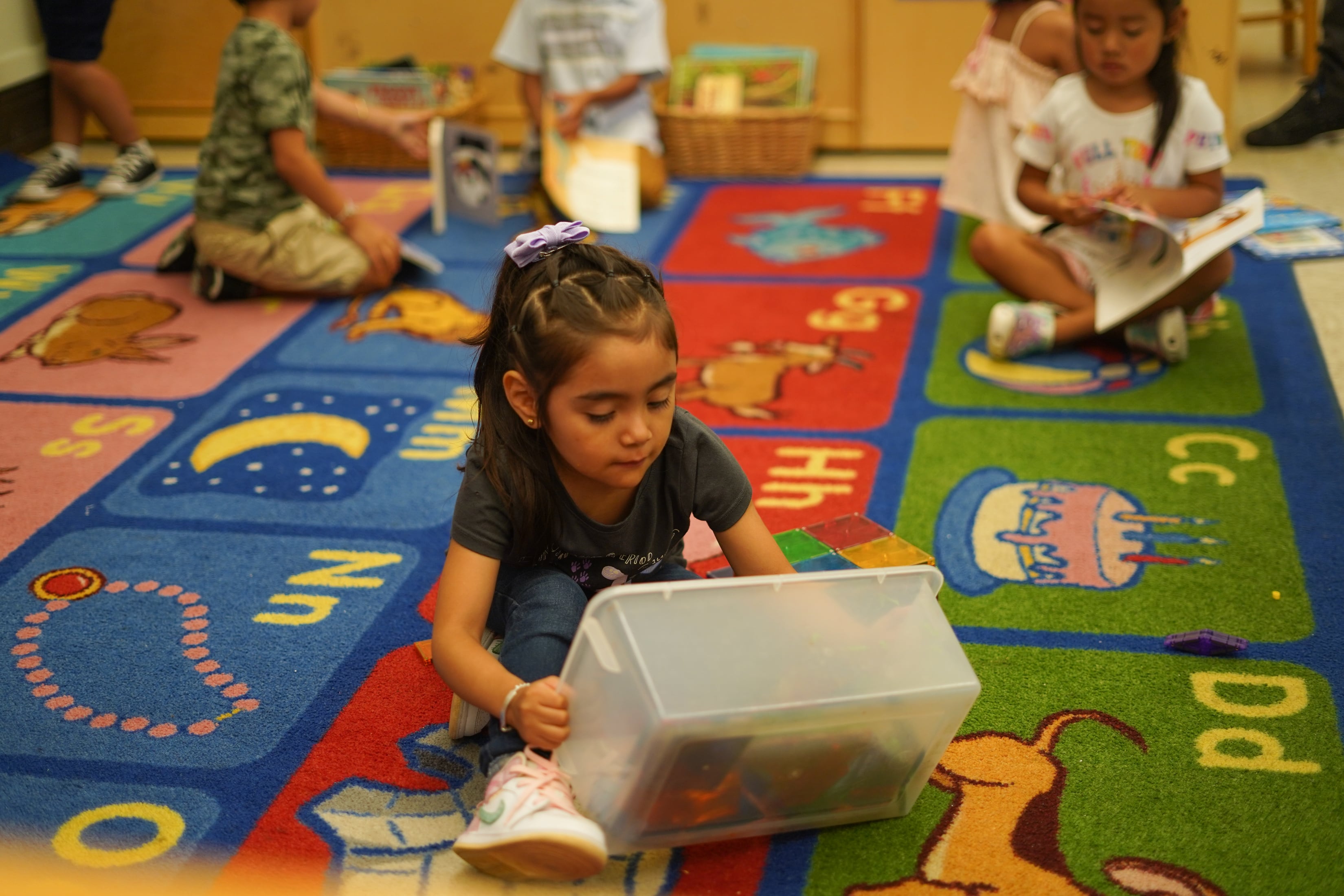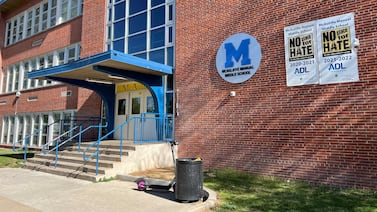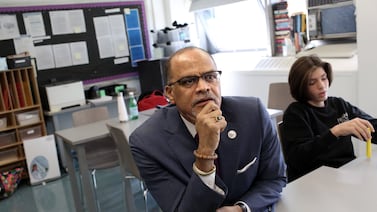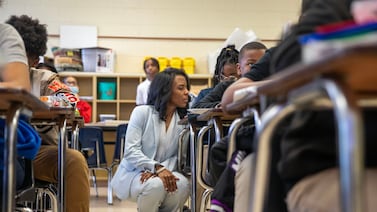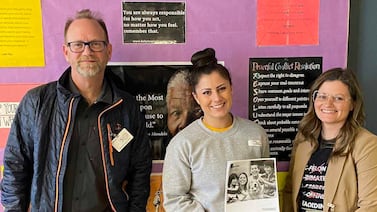Chicago’s youngest residents cannot vote for the city’s next mayor, but their parents can.
As Brandon Johnson and Paul Vallas face off in an April 4 runoff election to become the city’s next mayor, both have promised to support early childhood education and provide families with accessible and affordable options for high-quality child care. Johnson said he would focus on affordable child care and increasing wages for staff, while Vallas’ plan would support children from birth until they reach the classroom.
But experts, advocates, and child care providers say both candidates have given few details about how they would help the city’s over 200,000 youngest learners. They hope whoever is elected will increase funding for early education, address current staffing shortages, work across several agencies, and make child care more affordable.
Chicago Public Schools currently offers full-day free preschool for 4-year-olds. Community-based organizations also offer pre-kindergarten with full and half day programs for 3- and 4- year-olds. Head Start, which is federally funded and administered by the city’s Department of Family and Support Services, also offers child care and preschool for low-income families. In addition, some parents pay for private child care centers.
Kyrsten Emanuel, senior policy manager at Start Early, a nonprofit organization in Illinois that advocates for early childhood education and child care, said the mayor’s office is influential in shaping the city’s early childhood education and child care landscape, especially as community-based organizations and public schools are competing for students.
“Every time Chicago Public Schools expands pre-K, it impacts enrollment and staffing in community-based programs,” said Emanuel. “To mitigate that impact, there really needs to be intentional coordination happening both at the city and the community level.”
Johnson, a Cook County commissioner, has proposed “child care for all.” He says he would focus on making child care affordable for families and wants to increase wages for child care workers. In a statement to Chalkbeat Chicago, Johnson said he will work with Gov. J.B Pritzker and the general assembly to increase state funding for early childhood education.
“I will advocate in Springfield to end the system of giving wealthy corporations tax breaks at the expense of working families who desperately need safe, reliable child care,” Johnson said.
Vallas, former Chicago Public Schools CEO, wants to expand support for young children from birth until they enter the classroom — with a focus on teen mothers and their children. In February during an early childhood education mayoral forum, Vallas said he wanted to use under-enrolled school buildings for child care centers and create tax incentives for private centers to make child care more affordable for families.
Chalkbeat Chicago reached out to both campaigns for details on their early childhood education and child care plans. As of publication, Vallas’ campaign had not responded.
No matter who wins the election, Chicago’s next mayor will face a series of challenges while shaping the city’s early childhood education and child care landscape.
Mayor Lori Lightfoot has continued rolling out universal preschool to families with 4-year-olds in the city, continuing the work of her predecessor Mayor Rahm Emanuel. Under Lightfoot’s administration, the city’s early learning chief stepped down in the second year of the rollout and the early days of COVID-19 slowed down the city’s efforts.
Bela Moté, president and CEO of the Carole Robertson Center for Learning, who has seen the expansion of universal preschool under Emanuel and Lightfoot, hopes the next mayor has a dedicated team working on early childhood education issues. This is especially important, she added, because in Chicago early childhood programs are run by a mix of agencies, including Chicago Public Schools, the city’s Department of Family and Support Services, and community-based organizations.
“The machine doesn’t work if these three pegs aren’t moving together,” Moté said.
There are also challenges when it comes to staffing. Child care providers are struggling to attract and retain workers, who are often paid less than their elementary school peers. The early childhood education workforce is mostly women of color, who are often paid less than their white colleagues.
Meghan Gowin, a postdoctoral researcher at the Erikson Institute, said that as the city grows capacity for more 3- and 4-year-olds to enter pre-K in Chicago Public Schools and community-based organizations, the next mayor needs to look at what resources are currently available and the needs of the workforce.
“What are some of the supports and resources that are going to be provided to those centers and educators to make sure that as they’re getting in more children, they’re able to actually support those children in ways that are culturally sustainable and inclusive?” Gowin said.
Earlier this year, Gov. J.B. Pritzker proposed a four-year plan called Smart Start Illinois that would increase funding in order to serve more children. In the coming fiscal year, the governor is proposing an additional $250 million that would add 5,000 seats statewide in preschool classrooms for 3- and 4-year olds.
The state board of education’s early childhood education block grant would receive an additional $75 million — of which 37% would go to Chicago Public Schools. Pritzker’s budget still needs approval by the legislature.
Even with the state increasing funding to early childhood education, the city should look for additional ways to boost revenue, said Emanuel of Start Early. She also recommends addressing the staffing shortage through increased funding for Chicago Early Learning Workforce Scholarship, a program that supports Chicagoans who want to become early childhood educators in schools or community-based organizations.
Correction: March 31, 2023: This story has been updated to correct Bela Moté’s title from founder and CEO to president and CEO of the Carole Robertson Center for Learning.
Samantha Smylie is the state education reporter for Chalkbeat Chicago, covering school districts across the state, legislation, special education, and the state board of education. Contact Samantha at ssmylie@chalkbeat.org.


